Saturday, September 18, 2004
Is a Heart Cath Really Necessary?
Re: Is a Heart Cath really necessary???
------------------------------------------------------------------------
Quote:
Originally Posted by KShortie
Hi there. I had a heart catheterization, and it truly is the only test that gives the doctors the entire picture of whether there is blockage in your heart or not. It is invasive, but only a catheter is threaded up through the vein in your groin so it isn't like surgery. It's actually quite fast, I don't think it took over fifteen to twenty minutes once there in there looking. It really wasn't painful either. So if you are worried go ahead and have it.
Good luck!
Dr. Howard Wayne, pioneer in noninvasive diagnosis and treatment of heart disease said in his book, Living Longer with Heart Disease:
"The Holy Grail for cardiologists is the angiogram. It is worshipped with a religious fervor unlike any test in medicine. Go to any invasive or interventionalist cardiologist and he or she will invariably recommend an angiogram either the same day or the next day -- and will often become upset if you refuse...
"Is the cardiologist's faith in this procedure justified? Is the information the angiogram provides reliable? Can it tell the doctor how his or her patients should be treated, and if they are likely to have a heart attack and die? Will it provide information that can't be obtained in any other way? And, most importantly, is it even necessary to know whether and where an artery is narrowed to treat the patient? In simple terms, is the angiogram recommended for the patient's -- or for the doctor's benefit?...
"...When coronary artery disease is found on an angiogram, the cardiologist cannot be sure whether it is causing the patient's symptoms, or if the disease has been present for years...
"...there is very poor correlation between the anatomical amount of coronary artery disease and the presence or absence of symptoms..."
Bottom line regarding angiograms:
They cannot determine the cause of chest pain.
They cannot predict a heart attack.
Finally, Dr. Wayne, Fellow of the American College of Cardiology and American College of Physicians, has said "It cannot be emphasized strongly enough that the cornary angiogram is one of the most inaccurate and unreliable tests in all of cardiology. More often than not it leads to the wrong diagnosis, and results in inapprpriate and unnecessary treatment. It has little relationship to symptoms, it does not relate to the cause of the patient's symptoms, it correlates poorly with the function of the heart, and it cannot accurately predict the occurence of a heart attack. Immediate angiograms are done solely for economic reasons, not medical reasons. "
------------------------------------------------------------------------
Quote:
Originally Posted by KShortie
Hi there. I had a heart catheterization, and it truly is the only test that gives the doctors the entire picture of whether there is blockage in your heart or not. It is invasive, but only a catheter is threaded up through the vein in your groin so it isn't like surgery. It's actually quite fast, I don't think it took over fifteen to twenty minutes once there in there looking. It really wasn't painful either. So if you are worried go ahead and have it.
Good luck!
Dr. Howard Wayne, pioneer in noninvasive diagnosis and treatment of heart disease said in his book, Living Longer with Heart Disease:
"The Holy Grail for cardiologists is the angiogram. It is worshipped with a religious fervor unlike any test in medicine. Go to any invasive or interventionalist cardiologist and he or she will invariably recommend an angiogram either the same day or the next day -- and will often become upset if you refuse...
"Is the cardiologist's faith in this procedure justified? Is the information the angiogram provides reliable? Can it tell the doctor how his or her patients should be treated, and if they are likely to have a heart attack and die? Will it provide information that can't be obtained in any other way? And, most importantly, is it even necessary to know whether and where an artery is narrowed to treat the patient? In simple terms, is the angiogram recommended for the patient's -- or for the doctor's benefit?...
"...When coronary artery disease is found on an angiogram, the cardiologist cannot be sure whether it is causing the patient's symptoms, or if the disease has been present for years...
"...there is very poor correlation between the anatomical amount of coronary artery disease and the presence or absence of symptoms..."
Bottom line regarding angiograms:
They cannot determine the cause of chest pain.
They cannot predict a heart attack.
Finally, Dr. Wayne, Fellow of the American College of Cardiology and American College of Physicians, has said "It cannot be emphasized strongly enough that the cornary angiogram is one of the most inaccurate and unreliable tests in all of cardiology. More often than not it leads to the wrong diagnosis, and results in inapprpriate and unnecessary treatment. It has little relationship to symptoms, it does not relate to the cause of the patient's symptoms, it correlates poorly with the function of the heart, and it cannot accurately predict the occurence of a heart attack. Immediate angiograms are done solely for economic reasons, not medical reasons. "
Subscribe to:
Post Comments (Atom)



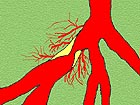
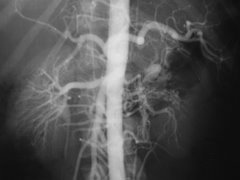
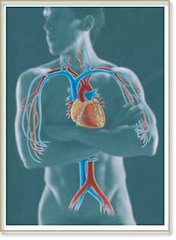
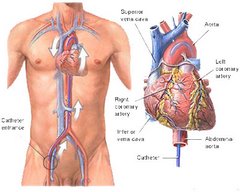
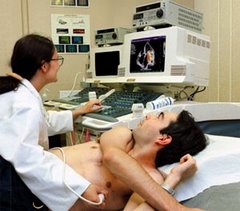
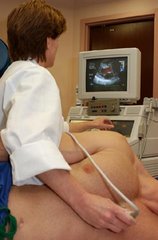
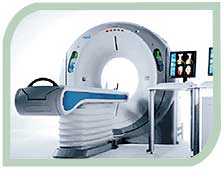
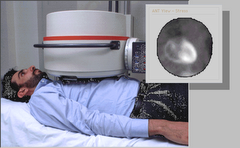
No comments:
Post a Comment